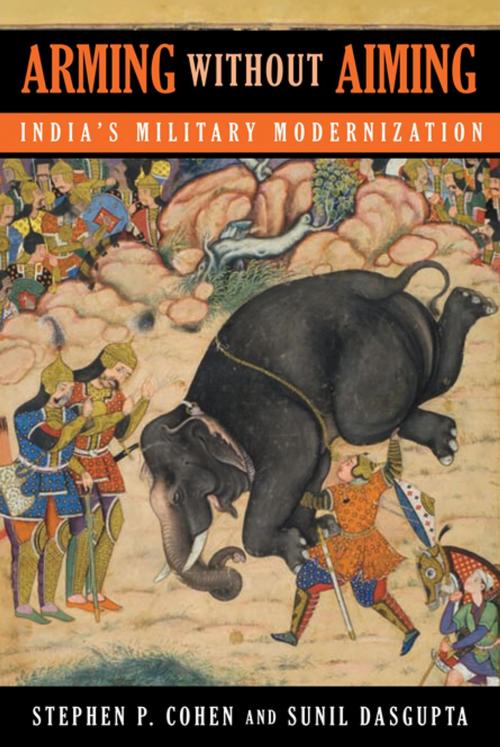Arming without Aiming
India's Military Modernization
Nonfiction, Social & Cultural Studies, Political Science, Politics, Arms Control| Author: | Stephen P. Cohen, Sunil Dasgupta | ISBN: | 9780815704300 |
| Publisher: | Brookings Institution Press | Publication: | August 1, 2010 |
| Imprint: | Brookings Institution Press | Language: | English |
| Author: | Stephen P. Cohen, Sunil Dasgupta |
| ISBN: | 9780815704300 |
| Publisher: | Brookings Institution Press |
| Publication: | August 1, 2010 |
| Imprint: | Brookings Institution Press |
| Language: | English |
India's growing affluence has led experts to predict a major rearmament effort. The second-most populous nation in the world is beginning to wield the economic power expected of such a behemoth. Its border with Pakistan is a tinderbox, the subcontinent remains vulnerable to religious extremism, and a military rivalry between India and China could erupt in the future. India has long had the motivation for modernizing its military-it now has the resources as well. What should we expect to see in the future, and what will be the likely ramifications? In Arming without Aiming, Stephen Cohen and Sunil Dasgupta answer those crucial questions.
India's armed forces want new weapons worth more than $100 billion. But most of these weapons must come from foreign suppliers due to the failures of India's indigenous research and development. Weapons suppliers from other nations are queuing up in New Delhi. A long relationship between India and Russian manufacturers goes back to the cold war. More recently, India and Israel have developed strong military trade ties. Now, a new military relationship with the United States has generated the greatest hope for military transformation in India.
Against this backdrop of new affluence and newfound access to foreign military technology, Cohen and Dasgupta investigate India's military modernization to find haphazard military change that lacks political direction, suffers from balkanization of military organization and doctrine, remains limited by narrow prospective planning, and is driven by the pursuit of technology free from military-strategic objectives. The character of military change in India, especially the dysfunction in the political-military establishment with regard to procurement, is ultimately the result of a historical doctrine of strategic restraint in place since Nehru. In that context, its approach of arming without strategic purpose remains viable as India seeks great-power accommodation of its rise and does not want to look threatening. The danger lies in its modernization efforts precipitating a period of strategic assertion or contributing to misperception of India's intentions by Pakistan and China, its two most immediate rivals.
India's growing affluence has led experts to predict a major rearmament effort. The second-most populous nation in the world is beginning to wield the economic power expected of such a behemoth. Its border with Pakistan is a tinderbox, the subcontinent remains vulnerable to religious extremism, and a military rivalry between India and China could erupt in the future. India has long had the motivation for modernizing its military-it now has the resources as well. What should we expect to see in the future, and what will be the likely ramifications? In Arming without Aiming, Stephen Cohen and Sunil Dasgupta answer those crucial questions.
India's armed forces want new weapons worth more than $100 billion. But most of these weapons must come from foreign suppliers due to the failures of India's indigenous research and development. Weapons suppliers from other nations are queuing up in New Delhi. A long relationship between India and Russian manufacturers goes back to the cold war. More recently, India and Israel have developed strong military trade ties. Now, a new military relationship with the United States has generated the greatest hope for military transformation in India.
Against this backdrop of new affluence and newfound access to foreign military technology, Cohen and Dasgupta investigate India's military modernization to find haphazard military change that lacks political direction, suffers from balkanization of military organization and doctrine, remains limited by narrow prospective planning, and is driven by the pursuit of technology free from military-strategic objectives. The character of military change in India, especially the dysfunction in the political-military establishment with regard to procurement, is ultimately the result of a historical doctrine of strategic restraint in place since Nehru. In that context, its approach of arming without strategic purpose remains viable as India seeks great-power accommodation of its rise and does not want to look threatening. The danger lies in its modernization efforts precipitating a period of strategic assertion or contributing to misperception of India's intentions by Pakistan and China, its two most immediate rivals.















